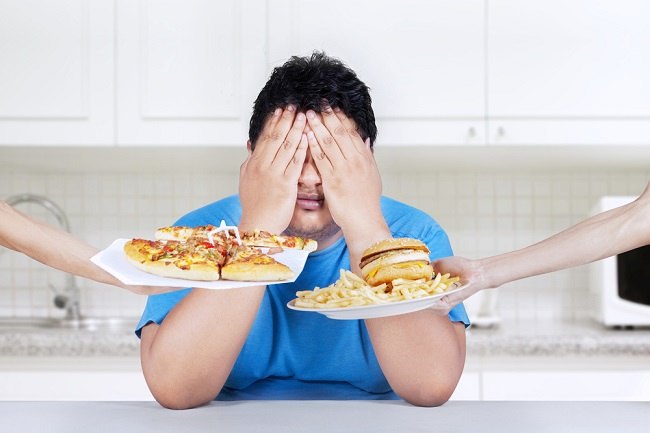Calorie Diet to Reduce Weight
Calories are used to calculate the amount of energy in food and beverages. Well , if we want to lose weight, one way that can be done is with a calorie diet. This diet is a diet that limits the intake of calories consumed.
Our body needs calories to make energy. However, everyone's caloric needs are different. It depends on several factors, such as age, gender, and physical activity that is lived daily.

Every day an average adult woman needs an energy intake of 2,000 calories, while an adult male is 2,500 calories. If consumed in excess, calories will be stored in the body as fat and make weight gain. For weight loss, calorie diet can be done, but you should first consult a nutritionist.
How to Do D iet K alori and Benefits
Calorie diet is done by limiting the number of calories that enter the body, which is only 1,000-1,500 for women and 1,500-2,000 for men. Reducing the number of calories as much as 500 can make weight down about 0.5 kg per week. By decreasing the number of calories, our body will break down the fat for energy.
In addition to being able to lose weight, a calorie diet with mild intensity also gives a good effect on health, such as reducing the risk of diabetes, high blood pressure, and high cholesterol.
Calorie diet can be done by changing the diet to be as below:
- Eat more protein
Eating more protein-rich intake is the most effective and simple way to lose weight. In addition, increasing protein intake can increase metabolism and help curb our appetite.
- Avoid soft drinks and packaged fruit juices
Packaging juice and soft drink usually have added a lot of sugar. Research shows that both types of beverages are very capable of causing obesity. If you want to consume fruit juice, it is recommended to consume pure fruit juice that is not given additional sugar.
- Drink a lot of water
Drinking two liters of water a day can burn up 96 extra calories in the body. If taken 30 minutes before meals, the hunger will be reduced and the number of calories from food consumed so little.
- Sports
When you're on a calorie diet, your caloric intake in your body decreases, and your body will balance it by burning fewer calories. A calorie deficit will also result in a loss of muscle mass as well as a significantly reduced metabolic rate. To prevent this from happening, it is advisable to exercise diligently, such as lifting weights, walking, swimming, jogging, push ups, sit ups, or squat . Adjust the intensity of exercise with the intake of calories consumed, so as not to feel tired.
- Reduce your carbohydrate intake
Especially coming from sweet foods and sugary drinks and simple carbohydrates. Not only good for weight loss, limiting carbohydrate intake is also good for people with metabolic syndrome and type 2 diabetes. Research shows, a calorie diet within 12 months by limiting carbohydrate intake is more effective in losing weight and blood triglyceride levels when compared with diet low fat.
Examples M will D iet K alori
If you're wondering what the menu of calorie-eating diets might look like, this guide might be the benchmark.
- Breakfast : 1 piece of fresh bread, ¾ cup corn flakes, 1 banana, 1 cup skim milk, 1 poached egg, 1 teaspoon margarine.
- Lunch : 60 grams of protein foods such as skinless chicken meat, 2 loaves of bread, 2 tomatoes, 1 teaspoon mayonnaise, 1 medium apple.
- Dinner : 60 grams of protein foods such as chicken or lean beef, 1 boiled potato, 1 teaspoon margarine, 1 cup cooked vegetables, ¾ cup of strawberries or oranges.
- Snack : 3 cup popcorn without flavor, 1 piece of plain bread, 1 cup skim milk.
Just like any diet in general, calorie diets also have side effects, such as headaches, dizziness, nausea, and constipation. Extreme low-calorie diets are also at risk of health problems, such as gallstones. In addition, not everyone fits into a calorie diet. Therefore, it is advisable to consult a nutritionist first to determine the type of diet that suits your condition.